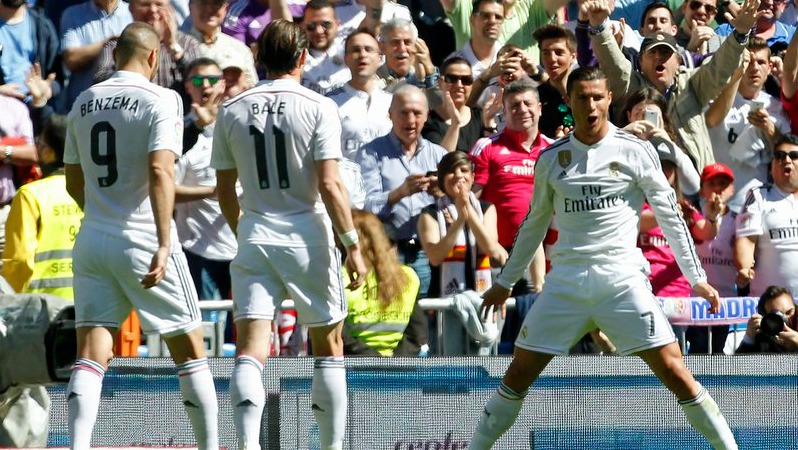Leicester City lifted the Barclays Premier League trophy this past weekend. Their achievement of transforming from a bottom half side in the league to Champions of England in just one season is the stuff of magic, fairy tales, heroic feats, and any other oft-used sports and literature related cliche. However, and I don’t mean to burst the Leicester City underdog bubble already, it’s unlikely to happen in any of the tops leagues in Europe again for awhile, and the main reason is of course, money.
Popularity Counts When It Comes To Moving Merchandise
If a soccer novice were to ask a fan who the most popular soccer teams in the world are today, they would rattle off names like Manchester United, Barcelona, Real Madrid, Paris Saint-Germain, and Bayern Munich. It is not very likely that a soccer fan would mention in the same breath, say, Norwich City or Getafe. Teams like those just haven’t had the same amount of success throughout their history, thus, they are not teams that have had much exposure in press and media internationally. And indeed since they are not known worldwide they won’t move merchandise in foreign markets like Asia, Africa, South and Central America or even here in North America.
Moving merchandise is crucial for a soccer team, as merchandise, along with television deal money, are the main sources of revenue for a club. The fact of the matter is, this disparity in merchandise revenue creates steep climbs for mid- to lower-level sides when they are competing with their richer and much more storied counterparts. Making Leicester’s feat all the more special.
TV Deals Keep Smaller Clubs Down
In Spain, England, and most other big European leagues, the television deals in previous seasons were essentially monopolies held by big clubs. Barcelona and Real Madrid for instance, held almost 50% of all of Spain’s top league TV broadcasting revenue until last season. This obviously lead to an uneven playing field in Spain financially, which is why Real Madrid and Barcelona have dominated for so long. Greed was good for a very long time in Spain and it has kept most Spanish clubs (excluding up until recently Atletico Madrid) below Los Blancos and the Blaugrana. Last year, La Liga finally renegotiated their TV deal as a collective; before teams negotiated individually, meaning the already mega-popular and rich, Real and Barca attracted the largest sums. This left smaller clubs like Rayo Vallecano, Eibar, or...take your pick, in the dust financially, unable to compete with the big clubs in the transfer market or for trophies.

Real Madrid's attacking trio, BBC, is highly marketable. Photo: @English_AS | Twitter
In England, the situation with broadcasting matches is a little less monopolistic and spread out more evenly, although, like Spain, that is very much only recently the case. The new TV deal the Premier League signed is set to start next season and is the richest in soccer history, worth over 5 billion British pounds. The TV money will be distributed more equally, but position in the league table matters. The higher you finish the more you earn, with approximately a £60 million gap from first place (Leicester or Chelsea from the previous year) compared to a struggler (Sunderland or even a newly promoted side).
This means a smaller club (like Leicester) still won’t have the money the more established clubs will earn from future seasons from television revenue, prize winnings and popularity (sales revenue), compounded with the fact that they have a history of earning less as well. The new television money parity will still help smaller clubs spend more money on players, but, they still won’t compete with what a Manchester City, Madrid or Bayern Munich can offer.
Conclusion
So what have we learned? Basically, popularity matters when it comes to success. Because popularity of course means more money. A big club, situated in a metropolitan European city like a Milan, Madrid or Munich will always have the upper hand on the little guy. The little guy, say a Leverkusen, Levante or Livorno just doesn’t have as much history or even opportunity for that matter. This is why what Leicester City achieved last week will always be special, because, like most special things, it probably won’t happen again anytime soon.
Money talks, bulls*** walks. Score one (yet again) for the big guys.



